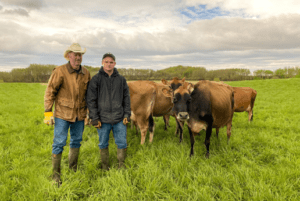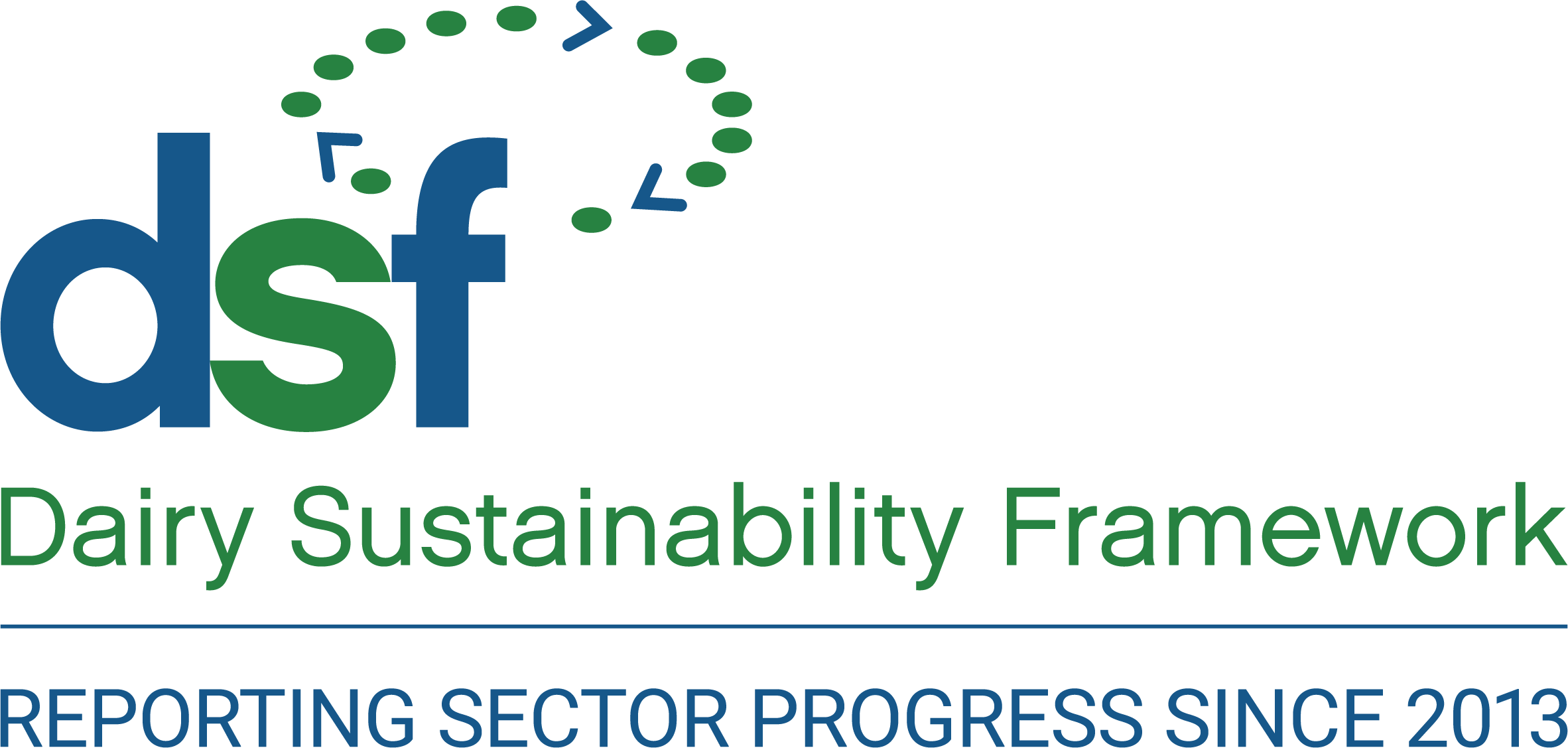DSF Webinar Series – Sustainability in action on dairy farms
DSF Webinar Series – Sustainability in action on dairy farms
The 2025 DSF series of webinars kicked off in February, featuring farmers from Canada and the U.S. sharing their unique perspectives of sustainability and the innovative actions they are implementing on their farms. The DSF is particularly grateful to our colleagues at Dairy Farmers of Canada and Land O’Lakes for identifying such enthusiastic and progressive farmer speakers!

Clanman Jerseys Ltd, Manitoba
Sean Smith of Clanman Jerseys Ltd, is a third-generation dairy farmer from Manitoba, Western Canada, farming with his parents. The Smiths milk 60 pure bred Jersey cows using a DeLaval VMS robotic milking system with cows housed in a compost bedded barn. Pasture management plays a major role in the summer months when both the milking herd as well as young stock are grazed using adaptive multi-paddock grazing management. Sustainability and preservation of wild habitat has always been a priority on the farm. Sean outlined the regenerative agriculture and sustainable soil practices they have put at the forefront of their farming operation, such as minimising soil disturbance through zero tilling and keeping a living root in the soil as much as possible. The Clanmans have observed a wealth of benefits as a result, such as building weather resiliency on the farm with increased water infiltration rates and soil water holding capacity, along with reduced feed costs and elimination of the need for synthetic fertilisers.

Ed Souza & Son Dairy, California
From the US, third-generation farmer, Anthony Souza, from County Tulare, California farms with his father, running the family operation Ed Souza & Son Dairy. They milk around 200 Holsteins, housed in a freestall barn, growing corn for silage and using many local food by-products (eg. almond hulls and citrus pulp) in the ration that would otherwise have gone to landfill. Anthony explained about the challenges they face with water availability in their area and how the farm works hard to conserve and recycle water. For example, water used to wash the cows’ teats prior to milking is then used to flush the yards and passageways, put through a separator to remove solids, storing the liquid fraction in a lagoon. The lagoon liquid is used to flush the yards three to four times before being used to irrigate crops as well as supplying some nutrients. GHG emission mitigation is via solar generated electricity, effective manure management, and optimising cow health.
These two individuals certainly generated a number of questions from the large audience of DSF members! A recording of the webinar is available on the DSF Members Area if you would like to catch up or even relive the key messages shared by these progressive farmers.
Don’t miss our next Sustainability in action on dairy farms webinar – in Oceania on 30 April (register here) and in Africa on 26 June (register here). Europe and Latin America will feature later in the year. The DSF looks forward to welcoming you to the next (April 30) webinar.
